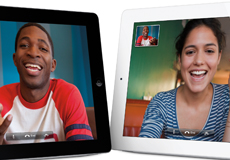- Consultant and columnist Tim Bajarin addresses the evolution of on-demand television distribution and the Internet as a disruptive business model.
- In a world of digital media, Bajarin suggests the networks “are now realizing that while they ruled the roost in the world of broadcast television, they are just another channel among thousands of channels that consumers can choose from for viewing video content.”
- “But what they don’t seem to get is that in this world of digital, they will need new distribution partners and that they will not have as much control over them as in the past,” he adds. “And I also don’t think they really understand the idea that people want to have access to that content anytime, anywhere and on any device they own.”
- Bajarin also suggests that Apple may be on the cusp of causing additional disruption.
- “Apple is going to become one of the most powerful video distribution networks by nature of their existing customer base and one that is added to continually,” he writes. “I know the networks would like to keep control of their distribution, but in the world of digital, those days are gone.”
- “The sooner the networks understand this and see things like Apple’s new distribution vehicle as a critical way to get their content to the masses quickly, the sooner they can adapt to and fine tune a new business models to take advantage of this new era of on demand, anytime, anywhere and on any device video content world.”

